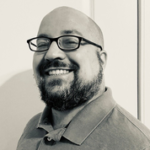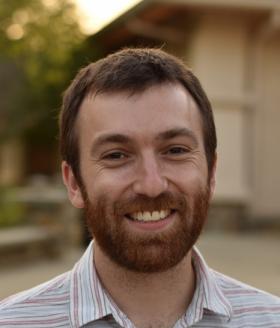By Luke Stafford


SIMI VALLEY, California –When the COVID-19 pandemic struck Los Angeles in mid-March, Rabbi Morris Panitz, director of American Jewish University’s (AJU) Ziering Brandeis Collegiate Institute (BCI), knew that this year’s iteration of the beloved summer program he oversees would be unlike anything seen in years past.
For nearly eight decades, BCI—housed under AJU’s Maas Center for Jewish Journeys—has been a midsummer tradition for Jewish young adults from around the world. Hosted at the University’s Brandeis-Bardin Campus in Simi Valley, BCI annually welcomes participants in their twenties for 26-days of Jewish learning, arts, culture and exploration of community and self.
Yet in the months leading up to summer, it became clear that the program’s traditional model of interpersonal engagement and experience could not be offered this year because of a global pandemic. Panitz saw an opportunity to continue to empower young adults to live and create Jewishly in their communities—a concept that is central to BCI.
“Unlike traditional summer camps, BCI is something you only experience once,” said Panitz. “In the past, this has meant that BCI alumni who had attended the program in different years rarely got to know each other, even when they live in the same cities. We saw this new reality as an opportunity to pivot to engage BCI alumni and to use the arts to continue developing the active connection to Judaism they cultivated during their original BCI experience.”
This pivot came in the form of four virtual workshops in the arts—with each participant joining the one that resonated with them most. Even more significant was the decision to tailor the program exclusively to BCI alumni—rather than for a new cohort, or Aliya, of participants. This move pushed the boundaries of what was previously possible in terms of alumni engagement. To denote this year’s departure from BCI’s typical structure, the program was named Kol Demama, Hebrew for “The Voice Within.”
Kol Demama drew 50 BCI alumni from across the globe, including the United States, Israel, the United Kingdom, Argentina, Chile and Kazakhstan. Through workshops in creative writing, videography, music, and photography, Panitz said that many participants have discovered that their chosen artistic medium has informed and enriched their Judaism, and vise-versa.
“The idea with Kol Demama is that, over the course of the four weeks, participants will explore a specific prompt or Jewish text through the prism of that artistic modality,” Panitz said. “Our goal was to stage four weeks of coming together online as a micro-community.”
Panitz said that Jewish learning and artistic expression are two aspects of life in which participants often feel they carry a lot of baggage. BCI, he said, is an experience meant to unlearn these messages.
“In life, people are told that they’re not Jewish enough, that they’re not good Jews, or that they should leave complicated questions to rabbis,” said Panitz. “The arts often present similar challenges, as many people are told at a young age that they should stick to math and science. BCI seeks to embrace the fact that Jewish text and artistic expression are remarkable access points to understanding ourselves and our world, and that you do not have to be a professional to contribute something meaningful.”
Kol Demama recently culminated in a digital gallery-walk with original work from participants. Panitz explained that this year’s prompt , Lishmo’ah Kol Shofar: To Listen to the Sound of the Shofar, allowed participants to reflect on the Jewish calendar as well as the hopes they have for the world and for themselves during a time of particular turmoil. The prompt proved particularly resonant for Heather Alper, a 2018 BCI alumna from Florida. Alper submitted an original song titled “Joyful Voices,” which she said was drawn from the text “With trumpets and sound of the shofar, raise joyful voices before God, the Sovereign One” (Psalms 98:6).
Alper enrolled in Kol Demama’s music workshop, taught by artist-educator Jared Stein. Alper had taken a similar course with Stein during her 2018 BCI experience, and cited Kol Demama as “an opportunity to create musical pieces that are particularly reflective of our own Jewish journeys.”
Danielle Smith, a 2019 BCI alumna from Massachusetts, also commented on how Kol Demama helped her reflect on her Jewish journey. Enrolled in a text-based writing workshop, Smith said, “Kol Demama reminded me how fun it is to dissect lines from the Torah and interpret different Rabbis’ commentaries. I especially found meaning in the moments in this workshop where we had open discussions and could hear the many perspectives we held within our own small group.”
Much like Alper, Smith said that collaborating with a mosaic of Jewish people from around the world was integral to her Kol Demama experience. Ezequiel Bacher, a 2018 BCI alumnus from Buenos Aires, agreed.
“I really enjoyed connecting with people all the way from Jerusalem to Omaha,” he said. “The so-called ‘language barriers’ actually enabled us to understand the (Torah’s) text in different ways and interpret with different perspectives.”
JessAnn Smith, a 2013 BCI alumna, recalled a similar experience with Kol Demama, referring to the program as a time of both “deep learning and exploration” and community.
“Kol Demama reconnected me with the ethos of shared open community experiences through a Jewish lens,” said Smith, who resides in New York.
It’s that sentiment that Panitz said truly encapsulates the spirit of BCI, Kol Demama, and AJU as a whole.
“Judaism gives us a place to look for the meaning that can make our lives so much richer,” Panitz said. “While introspection is at the core of BCI, it always happens within the context of community—which, to me, feels profoundly Jewish.”
*
Luke Stafford is a freelance journalist.